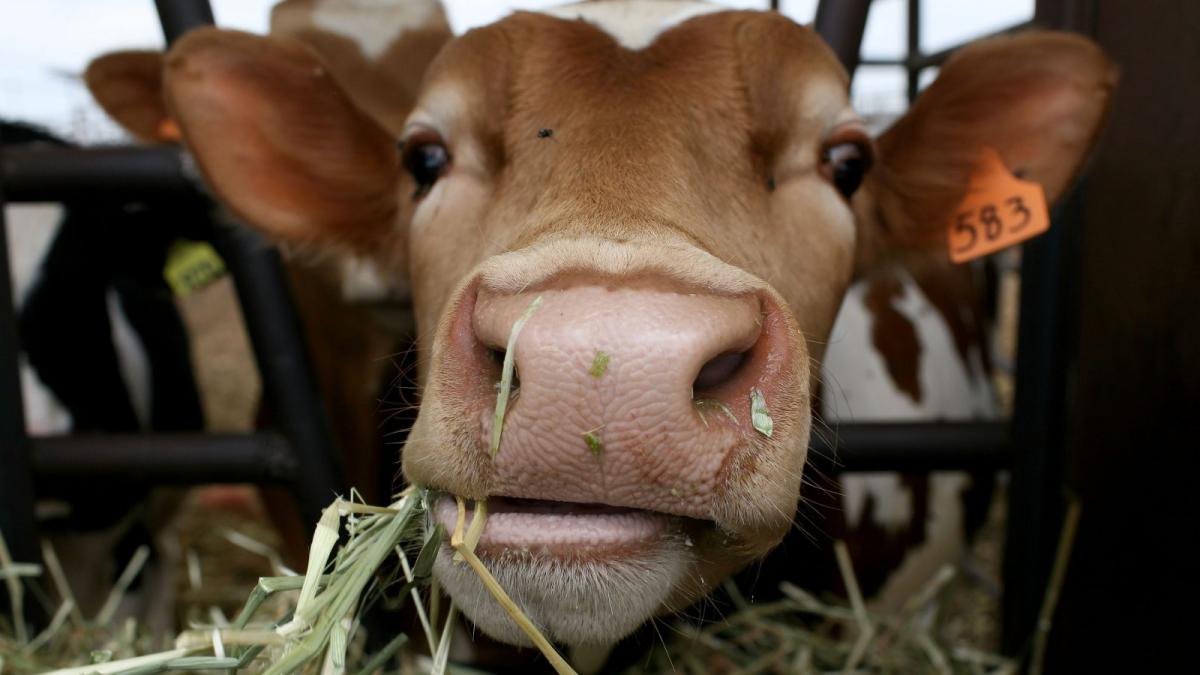This story was originally published by Mother Jones and is reproduced here as part of the Climate Desk collaboration.
One day in January 2014, police rushed to a farm in Rasdorf, Germany, after flames burst from a barn. They soon discovered that static electricity had caused entrapped methane from the flatulence and manure of 90 dairy cows to explode.
Headline writers had a field day. But the incident pointed to a serious problem: Ruminant livestock, mostly cattle, account for 30 percent of all global methane emissions, pumping out 3 gigatons of the gas every year in their burps, farts, and manure. Methane is an especially potent greenhouse gas: During its 12-year lifespan after being released, it traps 84 times as much heat as carbon dioxide, and its effect on global warming over a century is 34 times that of CO2. According to the United Nations, reducing methane emissions from cows could be one of the quickest ways to slow climate change.
The United States government has done little to curb this potent pollution, which makes up 36 percent of the country’s methane emissions. The Environmental Protection Agency’s AgStar program trains farmers to turn animal ... Read more

